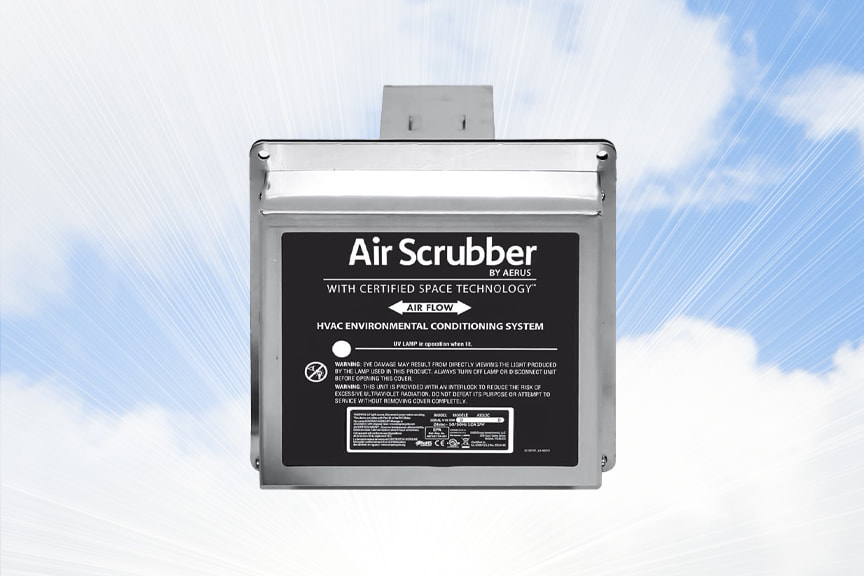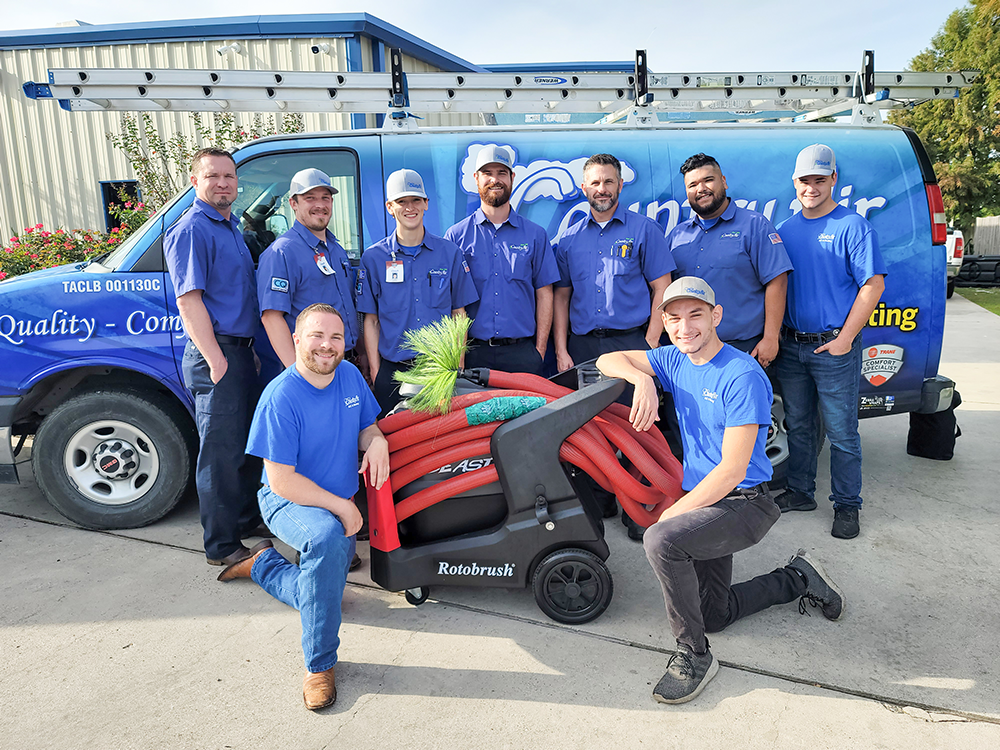Your home is a safe space. A place to relax, be yourself and enjoy precious time with your friends and family. You take extra measures to make sure your home stays safe like adding a security system, keeping up with routine maintenance and spraying for pests, for example. But have you ever thought about how the air you breathe in your home could be negatively affecting your family’s health over time?
What is indoor air quality?
Indoor air quality refers to the quality of the air in a home, school, office, or other building environment.
According to the EPA, Americans, on average, spend approximately 90 percent of their time indoors, where the concentrations of some pollutants are often 2 to 5 times higher than typical outdoor concentrations (1).
These pollutants can include:
- Fuel-burning combustion appliances
- Tobacco products
- Building materials and furnishings as diverse as:
- Deteriorated asbestos-containing insulation
- Newly installed flooring, upholstery, or carpet
- Cabinetry or furniture made of certain pressed wood products
- Products for household cleaning and maintenance, personal care, or hobbies
- Poor performing central heating and cooling systems and humidification devices
- Excess moisture
- Outdoor sources such as:
- Radon
- Pesticides
- Outdoor air pollution

How does poor indoor air quality affect your health over time?
Individuals with pre-existing conditions may have a harder time with poor indoor air quality conditions but even a healthy individual may experience symptoms like increased allergies after being continually exposed to poor indoor air conditions.
Symptoms could include (1):
- Irritation of the eyes, nose, and throat.
- Headaches, dizziness, and fatigue.
- Respiratory diseases, heart disease, and cancer.


How to improve the air quality in your home or office.
Luckily, there are several ways to combat poor air quality conditions in your home or office without needing to replace your existing unit.
- Change your air filters regularly. Around every 90 days you should replace your air filter to help maintain good air flow and keep particles and allergens out of the air you breathe. If you have multiple pets in the home or your air conditioning unit is working harder, like in the summer, you may want to replace your filter sooner than 90 days.
- Schedule an antimicrobial fogging with duct cleaning service. This kills microbes and mildew that may be growing in the air ducts. After fogging it is recommended to have your ducts cleaned to remove the debris which prevents regrowth.
- Invest in advanced media filters or Air Scrubbing Technology like the Aerus Air Scrubber: These options are designed to filter and kill bacteria, viruses, germs, odors and more as air is pulled through the unit, releasing clean air into your home.


Consult a professional.
A licensed HVAC company will be able to go over all the indoor air quality improvement options available and see which one will best suite your family’s budget and needs.
We offer a wide range of options here at Country Air and are always happy to answer your questions and give free estimates. Give us a call at 281-356-8564.






